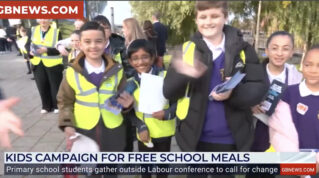With inflation stubbornly high and the onward rise of interest rates, it is clear that the cost-of-living crisis will dominate political discourse for the foreseeable future. Alongside the economy and the NHS, it will likely be a key issue when the country next goes to the polls at a general election in at most 18 months’ time, probably sooner.
Today, the Education Policy Institute, in work funded by the Nuffield Foundation, makes its case for education featuring prominently in that debate by publishing its analysis of what the key priorities of any incoming government should be across the early years, schools, colleges and universities.
A renewed focus on disadvantage
Inequality remains a feature of our school system. Prior to the pandemic, the gap between GCSE pupils from disadvantaged backgrounds and their peers was already the equivalent of 18 months of learning. Progress in closing the gap had stalled. It has now widened to its highest level in over a decade.
So, we are calling for a renewed focus on disadvantaged pupils, including targeting funding towards those in persistent disadvantage – those who have been eligible for free school meals for most of their time in school. It is these pupils who are the furthest behind and they form a growing group.
This is part of our wider view on funding and how it is distributed. Inevitably, we argue that per-pupil funding should increase. That is because there is good evidence on the link between resources and attainment, particularly for pupils from low-income backgrounds. But increases of recent years have disproportionately benefitted more affluent schools.
That needs to be rebalanced, as does the relatively low funding of post-16 education and the fact that there is no equivalent to the pupil premium in sixth forms and colleges. Allocations through the high needs block are also weighted too heavily towards historic allocations and not current needs.
A measured approach to attendance
Worryingly, in the autumn term of this academic year, nearly one-quarter of pupils were classed as being persistently absent, meaning they missed at least 10 per cent of all possible sessions. Persistent absence is particularly high among pupils eligible for free school meals.
Any strategy to combat absence needs to reflect its range of causes and address the importance of providing greater support to children with additional needs. The register of home-educated pupils also needs to happen.
A review of pay and conditions
The immediate challenge of ongoing industrial action appears to have been addressed by last week’s announcements in relation to teacher pay. But teacher pay has become less competitive, particularly in the further education sector and in shortage subjects. We think there is a role for widening the reach of the levelling up premium and the use of early career payments to retain teachers in shortage subjects.
Clearly, any government will need to make teaching an attractive career beyond pay alone. The early career framework and national professional qualifications have been steps towards a more professionalised, evidence-informed workforce. That needs to be reinforced through a continued focus on professional development and evidence-backed CPD programmes.
It also means reviewing the accountability system so as to reduce its impact on teacher workload and wellbeing, and also considering how we can improve flexible working arrangements in the way that the wider workforce has benefited from since the pandemic.
It is inevitable that readers of our report will have their own set of priorities for a new government, or alternative ways to tackle some of challenges that we have identified. There are also whole areas we have not touched on, such as curriculum, assessment and behaviour.
Our report isn’t a draft manifesto and we are also clear that schools cannot fix some of the wider challenges in society. Above all else, our aim is to ensure that policy debate and policy formation are informed by evidence and that all parties are giving education the attention and support it needs.
Read the full report, ‘Education priorities in the next general election’ here
















Your thoughts